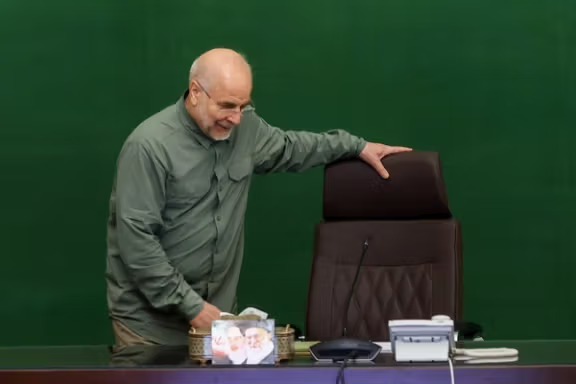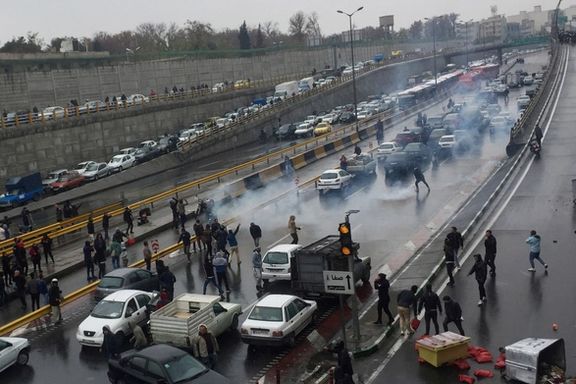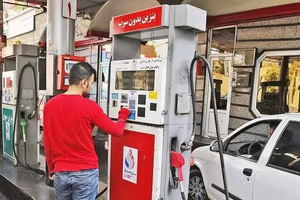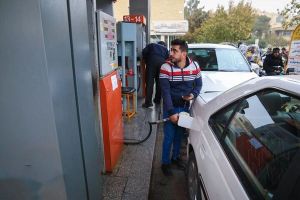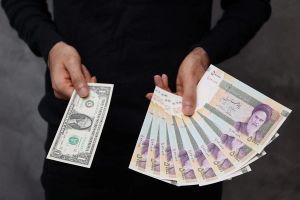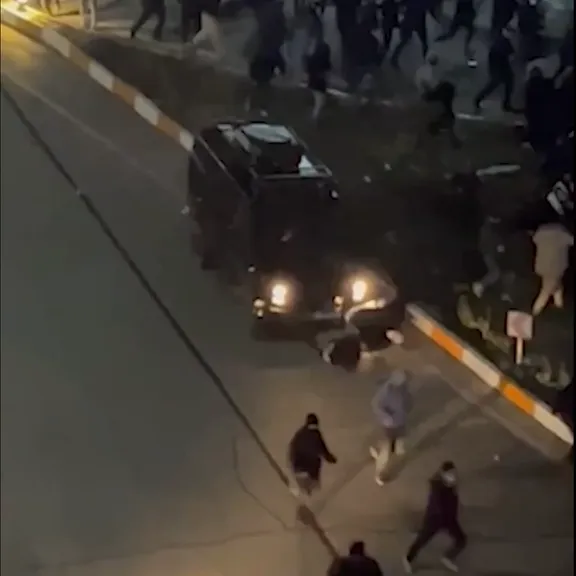For hardline supporters of the Shi'ite theocracy, his faith was a welcome slap to a US establishment seen as implacably hostile. To their critics, Mamdani's win highlights everything the Iranian system resists: youth, pluralism and the power of the vote.
The conservative daily Hamshahri, published by Tehran’s municipality, splashed "America Against America" on its front page, interpreting Mamdani's victory as a proof of the US enemy's internal divides.
Tehran lawmaker Abolghasem Jarareh declared in parliament: “Zohran Mamdani’s victory shows the strength of the slogan ‘Death to Israel!’”
Without elaborating, he then joined fellow lawmakers in chanting the slogan on the floor of parliament, a regular practice among arch-conservatives.
Abdolmotahhar Mohammadi, spokesperson for Tehran’s mayor, wrote on X: “The clear message of Zohran Mamdani’s election … is that the people of New York reject the influence of a genocidal regime in US governance,” adding that Iran “welcomes any strengthening of anti-racist and pro-Palestine discourse anywhere in the world.”
Gaza and Israel
Mamdani's platform emphasized affordable housing, police reform and Palestinian solidarity, earning him strong backing from progressives and Muslim organizations.
Early in his campaign he faced criticism for using the phrase "globalize the intifada" and has since distanced himself from the slogan. Mamdani has repeatedly called Israel's incursion into Gaza a genocide but has spoken out against anti-Semitism.
In an interview, he cited his Shi'ite Muslim faith as an important inspiration.
"To stand up for justice, to stand up for that which is right often means doing something difficult. Imam Hossein's, peace be upon him, conviction in spite of the odds is something that inspires me."
Mamdani has hit out at what he has called Islamophobia in the wake of the 9/11 attacks but has not cited Islam as a basis of his political outlook.
Still, Tehran University academic and idealogue Foad Izadi called Mamdani’s victory “the arrival of the message of 13 Aban in New York.”
He was referring to the Persian calendar commemoration of the 1979 storming of the US embassy by revolutionary students and the hostage-taking of staff there which permanently soured relations.
The date is now celebrated annually in Iran as a focal point of state-sponsored hostility toward Washington.
Free elections vs. clerical vetting
Middle East analyst Mostafa Najafi criticized the hardliners in a social media commentary titled “America’s self-healing system or the message of 13 Aban in New York?”
“Lacking a realistic understanding of the inner workings of power in the United States, some in Iran keep insisting that the country is on the verge of collapse or regime change,” he wrote.
Many critical voices drew sharp comparisons between America’s open elections and Iran’s heavily restricted political system, where supervisory bodies often whittle down lists of eligible candidates.
“Mamdani’s victory shows that despite 46 years of propaganda against America, it is democracy and the rule of law — not the will of the president who is the top official of the system — that prevail there,” prominent commentator Sadegh Zibakalam posted on X.
The veteran analyst was alluding to the limitless authority of Supreme Leader Ali Khamenei, Iran's ultimate decision-maker in all matters, including elections.
Conservative commentator Abdolreza Davari also wrote on X: “Mamdani’s rise in New York … is proof of people’s sovereignty and modern civilization. The roots of America’s global leadership lie in this very expression of the people’s will.”
“In our ‘religious democracy,’ the Guardian Council bars a Zoroastrian from city council because of his faith. But in ‘American liberal democracy,’ a socialist Muslim anti-Zionist can become mayor of New York,” Davari wrote in another post.
He was referring to Sepanta Niknam, a Zoroastrian elected to Yazd’s city council in 2013.
After winning re-election in 2017, a defeated candidate challenged his eligibility because of his religion. Although Zoroastrianism is a recognized religion under Iran’s constitution, Niknam was barred from taking his seat for over a year.
While he was eventually allowed to return, his candidacy for future elections was ultimately disqualified, making the case a symbol of theocratic discrimination.
'Masterclass in democracy'
Prominent jurist Mohsen Borhani called Mamdani’s win “a masterclass in democracy, rule of law and respect for citizens’ choices,” urging Iran’s Guardian Council, which oversees the approval of presidential candidates, to “learn from it.”
The rise of Mamdani, 34, also reignited Iran’s long-standing debate over youth exclusion from politics, even among conservatives.
Khamenei is 86, Guardian Council chairman Ali Jannati is 98 and President Masoud Pezeshkian is 71.
“If this young man from New York ran for office here, would the Guardian Council even approve his qualifications?” conservative activist Vahid Ashtari asked bluntly,
“In Iran, our elections are always between the same figures," he added. "Could any thirtysomething even imagine becoming mayor of the capital?”
